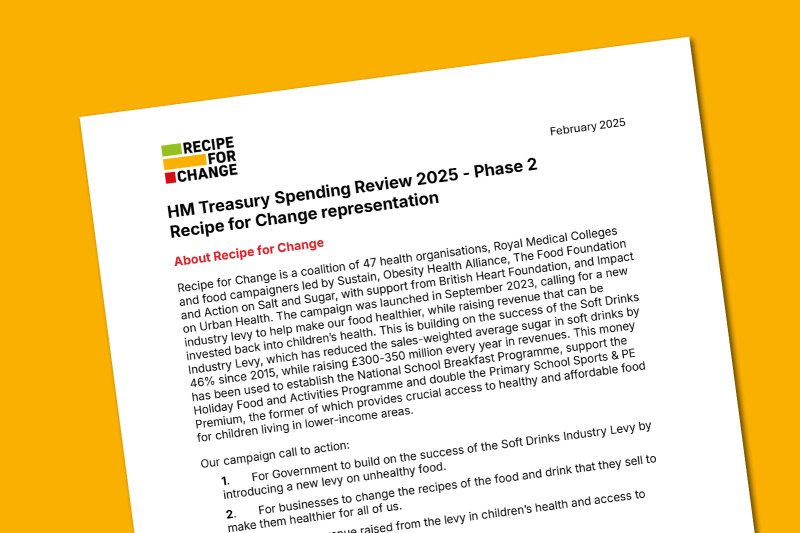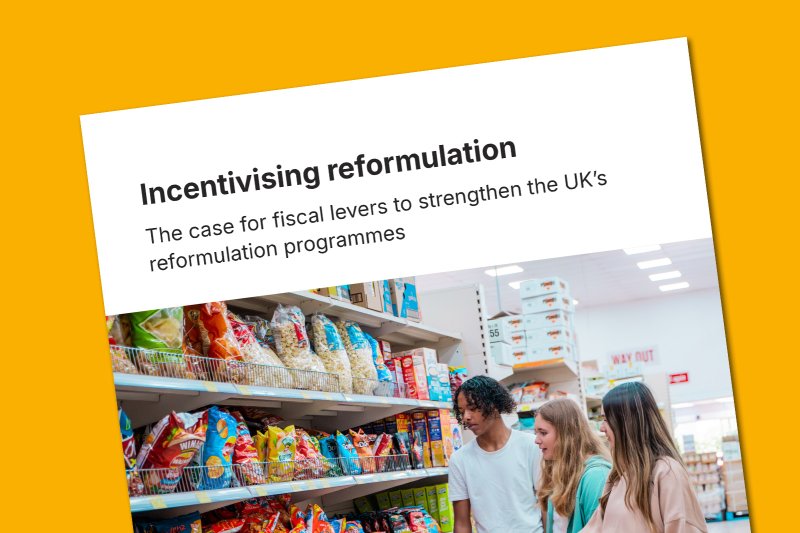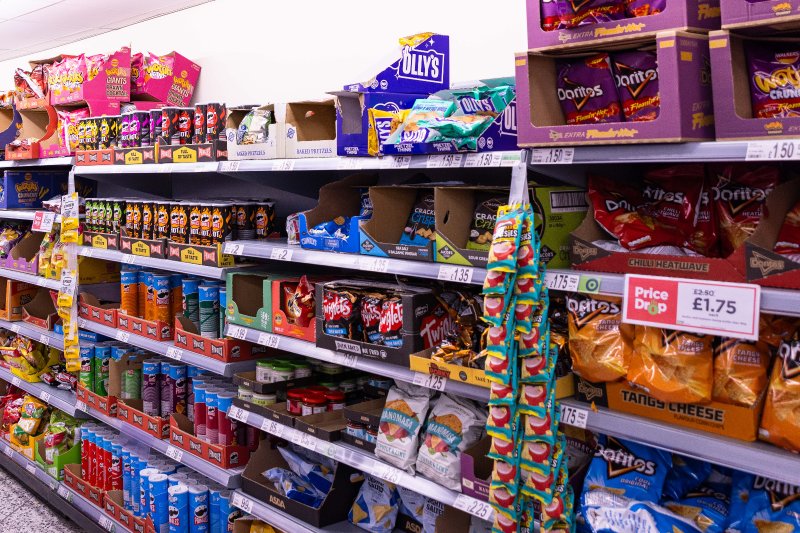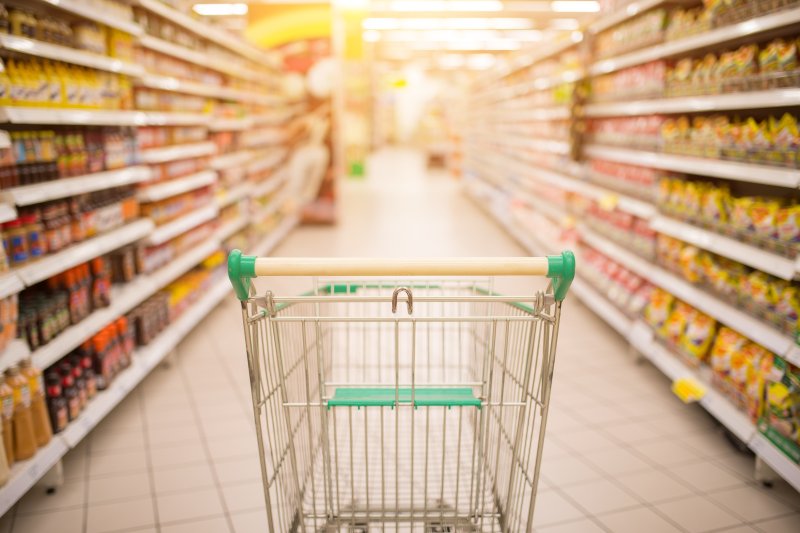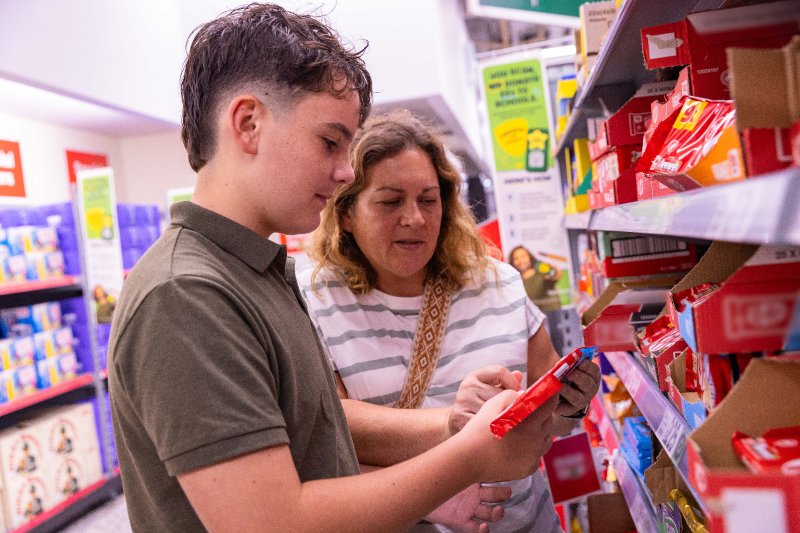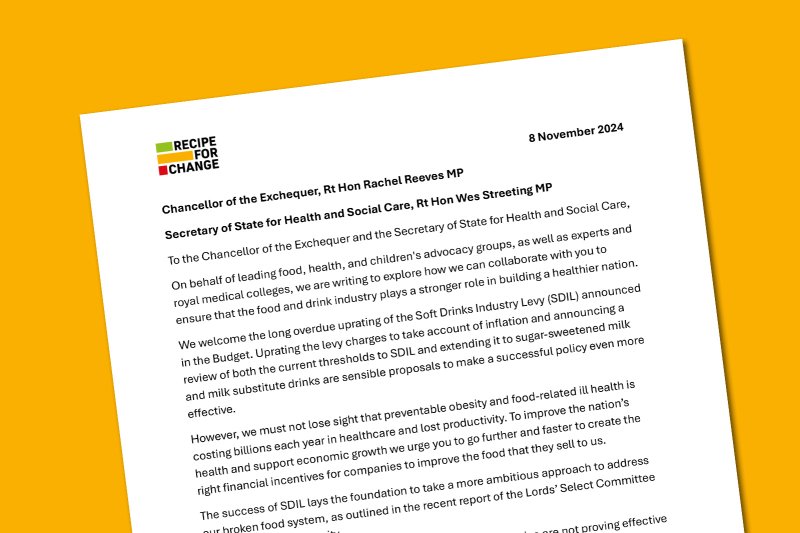News
Recipe for Change responds to the 2024 Autumn Budget
Recipe for Change welcomes the announcements in the Budget today that the Soft Drinks Industry Levy will be strengthened after six years, introducing important and long-planned first steps towards the much wider changes needed to make the food we eat better.
The Soft Drinks Industry Levy (SDIL) has been incredibly successful at taking out vast quantities of sugar from children’s diets, reducing sugar content in drinks by 46 million kg, while consistently raising over £300 million per year which has been used to fund children’s health including establishing the National School Breakfast Programme and supporting the Holiday Food and Activities Programme. In our submission to the Autumn Budget we urged the Government to go further and make sure the SDIL was working as hard as it could for children’s health.
The full budget document from HM Treasury announces a number of common-sense improvements to the SDIL that reflect our recommendations and what public health experts have been calling for:
- An uprating of the levy charges to take account of inflation since 2018, to begin from April 2025. Unlike other excise duties, the SDIL has never been uprated since its introduction in April 2018. This shift has the potential to trigger further reformulation to make soft drinks less sugary, and we strongly urge the Government to invest all the money this raises straight back into programmes to fund children’s health, and make healthy food more affordable for families.
- A review of the current thresholds and banding for the SDIL, which will consider the current cluster of drinks that are technically considered by the Nutrient Profiling Model to be high in fat, salt and/or sugar (HFSS) because they contain more than 4.5g sugar per 100ml but are not subject to the levy, as well as the drinks above 8g where further sugar reduction is needed most.
- A review of the current exemption for milk-based and plant-based alternative drinks with added sugar. These were initially exempted from the SDIL to allow the industry more time to reformulate voluntarily, with an explicit commitment to keep this under review. We note that this review does not currently include open-cup milky drinks served in the out-of-home sector, where there has been a 12.7% increase in sugar content of open-cup milkshakes since 2015. We are pleased to see the Government finally consulting on inclusion of milk-based drinks in the SDIL, and urge them to include drinks made on-site in cafés as part of the review.
This is a welcome first step to making the food we eat better for us, and we urge our partners to take part in the proposed review of SDIL. However, whilst welcoming these relatively small, long-planned changes, the Recipe for Change campaign continues to call on Government to build on the success of the Soft Drinks Industry Levy, by extending similar regulation to a wider range of food and drink high in salt and sugar.
We strongly urge the Government to ensure the forthcoming Comprehensive Spending Review in Spring 2025 considers the evidence and potential models for building more financial incentives for the whole food industry, and especially addresses the highly processed foods full of added sugar and salt that continue to flood our shops, cafes and high streets.
The Recipe for Change partners share their responses:
Barbara Crowther, Children’s Food Campaign Manager at Sustain says:
“It’s absolutely right that after six years, the government should now increase the penalties for all the companies who have not done enough to reduce the sugar levels in drinks, and we urge them to ensure all money raised by the levy is reinvested in children’s health.
“We hope this also signals a greater appetite from this government to create smart financial incentives for food companies to make healthier products. There is huge potential to apply this successful approach across a much wider range of food and drink that remain overloaded with high levels of sugar and salt, making companies pay more for producing unhealthy products, and increasing the number of healthier food and drink options for children and families everywhere.”
Katharine Jenner, Director of the Obesity Health Alliance says:
“The Chancellor has made the right decision today to strengthen the highly successful Soft Drinks Industry Levy to incentivise the food and drink industry to make these products healthier.
“A healthy population is the foundation of a strong economy, and further action to remove added sugar and salt from our food is vital to deal with the dire situation identified by the Darzi review. Preventable illness from obesity and dietary-related diseases is contributing to huge pressure on our NHS and driving far too many people out of the workforce.
“These small but welcome steps are necessary to meet the Government’s ambition of creating the healthiest generation of children ever."
Anna Taylor, Executive Director of the Food Foundation says:
“These are sensible proposals to make a very successful policy even better. They provide the foundation for a more ambitious approach to creating the right incentives to align business behaviour with the government’s commitment to improve public health. Further and faster should be the name of the game right now – the harm to children’s health caused by food industry behaviour is the biggest current threat to wellbeing and long-term productivity and needs to be urgently reined in.”
John Maingay, Director of Policy and Influencing at the British Heart Foundation says:
“Increasing the levy is a sensible and obvious step to help incentivise soft drink manufacturers to further reduce the amount of harmful sugar in their products. The Government should now build on the success of this policy by extending a similar levy to foods containing too much salt and sugar. This will help to address stubbornly high rates of obesity, overweight, and cardiovascular disease across the UK.”
Sonia Pombo, Head of Impact and Research at Action on Salt says:
“We welcome the government’s recent decision to increase the Soft Drinks Industry Levy in line with inflation, as announced in the Chancellor’s Autumn Budget. Whilst a logical step, this should be a first of many measures to tackle the broader dietary health issues affecting communities across the country. High rates of obesity, heart disease, and other diet-related diseases highlight the need for a more comprehensive approach to public health policy. For too long, the food and drink industry has had a disproportionate influence on health policies, often prioritising profit over the well-being of consumers.
"We now urge the government to consider additional, robust measures, such as introducing salt and sugar taxes on food manufacturers – a recommendation strongly supported in the recent report by the House of Lords Food Diet and Obesity Committee. By broadening the scope of health-focused fiscal policies, we can create a more sustainable and impactful improvement in public health.”
Nikita Sinclair, Programme Director at Impact on Urban Health says:
“We welcome the decision to strengthen an already successful policy, ensuring drinks manufacturers are encouraged to increase the flow of healthier options in all neighbourhoods.
“It’s great to see Government recognising the power of the food and drink industry to protect children’s health and prevent future food-related ill health. If the Government is to achieve its ambitions to create the healthiest generation of children ever, it must build on this progress by incentivising manufacturers to reformulate on a wider range of unhealthy food and drink products through targeted fiscal measures.”
Read our full Autumn Budget submission
Published 30 Oct 2024

